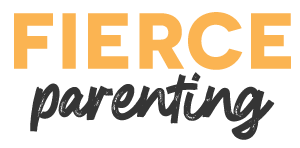“Not everyone can be a foster parent, but everyone can help foster kids…”
It was our first night as foster parents. That well-known radio ad was playing overhead at midnight as I desperately wandered the baby section at WalMart. Picking up and putting down baby supplies like a zombie— I was trying to find the magic combination that would make our first foster baby stop screaming.
That ad hit home: “Not everyone can be a foster parent…”
I sank to the ground and cried— “That’s it! He’s right! We can’t be foster parents!”
Obviously I was taking the ad out of context, but in that moment it felt like a sign. I worried that God had picked the wrong person for the job.
“We can help another way,” I thought. “Donate money or something.”
Thankfully, we made it through that night and many more. We’ve now been foster parents for nine years. We’ve adopted twice, had five long-term foster children and many more in our home for respite care.
We are older, wiser, and a bit grayer— but God has taught us so much about trust along the way. We’ve learned to trust God, trust each other, and trust our calling as foster parents.
Trusting God’s heart
God’s heart for children is written all through the Scriptures. Jesus says, “Let the little children come to me and do not hinder them” (Matthew 19:14). Psalm 68:5 says,
“A father to the fatherless, a defender of widows
is God in his holy dwelling.
God sets the lonely in families…”
But do I still trust God’s heart for children when I’m helping a newborn detox from drugs, their tiny body shaking?
Do I trust God when I’m comforting a child during another sleepless night because of deep trauma that doesn’t let their body rest?
Can I trust God when children that we’ve loved for years are sent home to questionable situations? Or when a birth parent I’m cheering for falls prey to their addiction and loses their children?
Foster care has taught me that God is not afraid of my questions. And I have to turn to Scripture when God seems silent. Isaiah 55:8 says,
“For my thoughts are not your thoughts, neither are your ways my ways,” declares the Lord. “As the heavens are higher than the earth, so are my ways higher than your ways and my thoughts than your thoughts.”
And Psalm 103:13:
“As a father has compassion on his children, so the Lord has compassion on those who fear him.”
Any amount of love or compassion we have for God’s children is only a small glimpse of God’s care for them. We trust in a God who will someday make all things right. We’re learning to trust Him with these children that we come to love as our own.
Any amount of love or compassion we have for God’s children is only a small glimpse of God’s care for them.
Trusting each other
I’ve heard foster care called “voluntary redemptive suffering”— and suffering can take a big toll on a marriage. We’ve learned a lot about trusting each other as husband and wife through being foster parents.
We’ve learned we need grace upon grace
Foster care is all about giving sacrificially of yourself to join God in redeeming and restoring another’s life. It’s beautiful and biblical. But the problem with giving away pieces of yourself to heal another family (which is always the first goal of foster care) is that it can leave you depleted.
And if two people in a marriage are depleted, it can be hard to love and serve each other well.
We’ve learned to lean on Jesus. Foster care might deplete you, but Jesus offers us a spring of living water that never runs dry (John 4:13-14; John 6:35; Jer. 2:13). We’ve learned to trust him for the grace to do what He’s called us to do— because we know through experience we can’t do anything by our own strength.
When we get worn down and hurt each other, we’ve learned to apologize and trust the other for forgiveness. We’ve learned we need to give and receive grace.
We’ve learned to say no
Sometimes trusting each other means saying “no” to more children.
When we can tell that we’re unable to serve each other well and we need time and space before welcoming a new child, we’ve had some hard conversations.
We’ve also learned to listen and trust each other when one of us doesn’t feel peace about a placement.
We’ve learned to connect and reconnect
Once, we were getting ready to say goodbye to one of our foster babies, and we knew we needed to reconnect with each other. We knew we were emotionally and physically depleted— so we decided to train for our first 10k!
Training allowed us to rediscover each other— we cried, sweated, prayed and did something hard together. When it was time for our baby to leave, we were connected to each other first.
We’ve learned that two is better than one
We had one child who would scream for hours every night. We’d take turns pacing the floor and rocking him. I really struggled to bond with this child and felt incredibly guilty about it.
One early morning after another chaotic, sleepless night, my husband collapsed into bed during a moment of silence and said, “I think I love him.”
And I burst into tears and hugged him because I was so thankful that he was able to feel love for this child that I couldn’t love yet.
Marriage is about one person being strong when the other is very weak. And when we’re both weak, we have to keep leading each other back to Christ— the reason why we’re foster parents in the first place.
Foster care might deplete you, but Jesus offers us a spring of living water that never runs dry.
Trusting that we’re called to foster care
God called us to be foster parents through a generational ministry in my family. My mom was inspired to start fostering after 9/11, and my family adopted my two siblings through foster care.
When my husband and I met, I told him I wanted to foster someday. Seeing him with my chaotic, non-traditional family, I realized he didn’t scare easily and was a good candidate to be a future foster dad.
We started the process after being married for a year and a half— and found out along the way that we’re unable to have biological children. I remember telling God that if he let my foster children of two years at that time stay, I would never doubt his plan.
Well, God did let my children stay and yet I still doubted his plan!
The human heart is fickle, and raising children with ongoing struggles from their pasts can be exhausting.
We’ve often felt over the past nine years like we’re not the right people for the job. Like Moses who stuttered and asked God why he chose him, I can have a temper that doesn’t seem to do well with low impulse control from trauma.
But we trust God’s wisdom in choosing and training us to be parents to these children. We trust his calling as foster parents.
The greatest prayer is “Yes”
Ryan Kelly of America’s Kids Belong says, “If you are praying about becoming a foster parent or becoming part of the movement, in my experience the greatest prayer is ‘YES.’”
God calls all of us to care for children who need homes. We don’t use the term “orphan” with foster care because children in foster care do have parents— many of whom love them very much. They’re just fighting battles and addictions. God calls us to love both the parents and the children.
God calls all of us, especially Christians. To quote that infamous radio ad: “Everyone can help foster kids.” Whether it’s donating your time, your money, your resources— or maybe even your home— we invite you to join us in trusting God, trusting each other, and trusting your call to care for foster kids.
share this
FREE RESOURCE

Get the Family Vision eBook
Build unity and gain Gospel-centered clarity for life's big and small decisions. Download our 54 page eBook, Crafting Your Own Family Vision Statement by filling out the form below.
We’ll never sell your info. Unsubscribe any time.
about the author
Lynette Mix
Lynette lives in the PNW with her family. She and her husband Brendon have been foster parents for eight years. They have adopted two children through foster care and fostered many others. Their family enjoys hiking, camping, and anything that involves playing outside.





